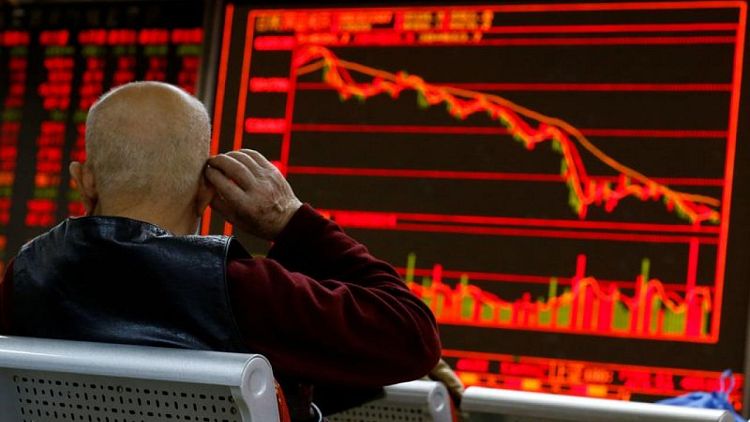By Jorgelina do Rosario
LONDON - Emerging market investors who avoided Chinese shares this year have seen less pain than those with portfolios exposed to the gamut of EM stocks, a trend exacerbated by this week's selloff.
The iShares Emerging Markets excluding China ETF has fallen by 25% so far this year, its worst performance since its inception in 2017.
But it has still beaten the 30% decline in the iShares MSCI Emerging Markets ETF, which includes Chinese equities, in this time, according to Refinitiv data.
The blue-chip CSI 300 index, which includes the largest firms in Shanghai and Shenzhen, has fallen 35% since January. The last time the index outperformed the ETF and the S&P 500 was back in July, after the Chinese government announced stimulus measures to support the COVID-19-hit economy.
EM Stocks ex China https://fingfx.thomsonreuters.com/gfx/mkt/klvygedrlvg/China%20Stocks.jpg
Global investors dumped Chinese assets on Monday as Xi Jinping's new leadership team raised fears that growth will be sacrificed for ideology-driven policies.
China's economy rebounded at a faster pace than expected in the third quarter, but strict COVID curbs and a deepening property crisis have cast a shadow over Beijing's efforts to foster a robust revival next year.
"The implication of the new party line, the prolonged zero-COVID policy, the high risk of global recession and geopolitical challenges pose downside risks to our current 2023 growth forecast of 5.3%," said XD Chen, BNP Paribas chief China economist.
BlackRock Inc, the world's largest asset manager, said President Xi's confirmation "paves the way for greater state control of the economy and markets" and Chinese assets warrant a higher risk premium as a result.
"This reinforces our view that China is entering a lower growth phase - and that a given growth outlook will likely translate into lower market returns than in the past," it added in an October report from its investment institute after the 20th Communist Party Congress.
Foreign investors sold a net 17.9 billion yuan ($2.5 billion) of Chinese onshore shares via Stock Connect on Monday, the biggest outflow since the scheme was launched in 2014. Investors bought a net 2.8 billion yuan ($390 million) of Chinese onshore shares on Tuesday.



